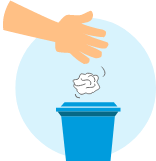
What do I need to know about coronavirus?
COVID- 19 easily gets transmitted and is triggering respiratory illness around the globe. The novel coronavirus can show symptoms such as fever, cough, and trouble breathing. Although it is seen that many patients develop asymptomatic or even undergo mild symptoms, few of them suffer more severe cases in particular pneumonia, which is proven to be deadly. It is also found that a lot of individuals around the world developing severe complications are the older groups of people or already have former chronic medical illnesses that can include heart disease, lung disease, and diabetes.
How can I help prevent the spread of infection in my family and community?
Everyone has an important role to play in protecting our families and communities from fighting and protecting from coronavirus. Thus keeping our loved ones and everyone else around us safe.

Social distancing
Stay at home, if possible! The maximum you can do right now to prevent coronavirus is to reduce close contact with others. We plead again: stay indoors if you can.

Wash hands often
Wash your hands often using warm water and soap for no less than 20 seconds before you eat or prepare food. You must wash your hands while leaving the bathroom. Use hand sanitizer as often as you can.

Cover your mouth and nose
Cover your sneezes and coughs using your elbow or a tissue. If you dispose of used tissues, do so carefully and wash your hands.

No touching face
Clean used surfaces very often such as phones, light switches, and door handles with a disinfecting solution frequently. Completely avoid touching your face area.

Dispose of used tissues
Displace used tissue in a bin which will help limit the spread of the virus and flatten the curve. Also, wash hands immediately.

Kindly, stay home
Unless it is an absolute requirement, stay home if you can. And, if you have to leave home for basic supplies or medical help, just stay 6 ft away because humans can spread this virus even without any signs of symptoms

We’ve curated support for you!
In response to control the global pandemic and to help protect our families and communities, We are providing opportunities to schedule a virtual care visit with Accessible Doctors.
If you are dealing with anxiousness regarding Covid-19 and all the changes brought by it. Consider turning up to our expert doctors for advice on what to do next or have any other questions.
FAQ: Answers for you about Coronavirus
For extra peace of mind, stay informed about these commonly asked questions below.
Want to learn more about the coronavirus?
Read our blog posts by our doctors below.
How Telehealth Can Help During The Global Coronavirus Pandemic?
How Telehealth Can Help During The Global Coronavirus Pandemic?
As coronavirus cases are increasing every day, hospitals are overwhelmed with patients - there’s a l
Read MoreHow to keep you and your loved one safe during the Covid-19 pandemic?
For once united we fall, divided we stand!
The virus does not know boundaries but we do. And we can fight it if all of us do best by social distancing. Can’t
Read More